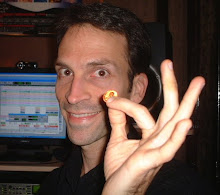Regular readers of this blog know that keeping costs low lies at the heart of my financial philosophy. If there is a way to save a nickel on something, I will invariably find it. And while I still firmly believe that low living expenses are the key to financial success, I don't always advocate going for the rock bottom price on every purchase. Instead, for the sake of minimizing long-term expenses, I would suggest that thorough knowledge is essential to finding the best value among products or services.
Your local dollar store is full of examples of what I'm talking about. Have you ever purchased a $1 pair of headphones? That is certainly the lowest possible price, but there's no value in that purchase. Once you hear how they sound (if they produce any sound at all), you will realize that you haven't saved any money -- you've just thrown away a dollar! I don't mean to pick on dollar stores, actually I shop for lots of little items there, but only when I know that the quality is comparable and the price reliably lower than at other retailers.
When comparison shopping, it is very common to find that the cheapest available product is of considerably inferior quality. I suspect that we have all experienced this frustration of buying the cheapest item, only to immediately discover that it won't do. Then you have to go out to buy another one again, and you also waste more time shopping when you could have been home writing a song.
A lot of people go for the lowest priced junky product or service simply because they are too broke to afford the better one that will actually last and get the job done properly. If you're in that position, then you probably shouldn't be shopping at all, you should be saving up and researching the market until you can afford something worth buying.
Don't get me wrong. I'm not encouraging you to go on a first-class spending spree. In fact, there are many cases where the cheapest option is actually just as good as the most expensive option. Gasoline is a good example. There is virtually no difference in quality between the most expensive brand name gas and no-name discount gas, despite what some TV commercials might suggest. But you need to do a little research to find these things out. And once you are armed with knowledge of the market for a given product or service, you will also be able to negotiate for it with greater confidence.
Subscribe to:
Post Comments (Atom)






No comments:
Post a Comment